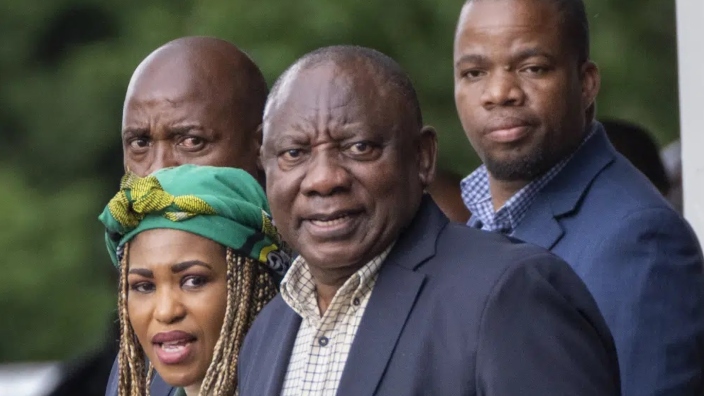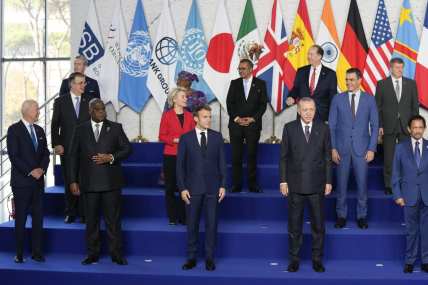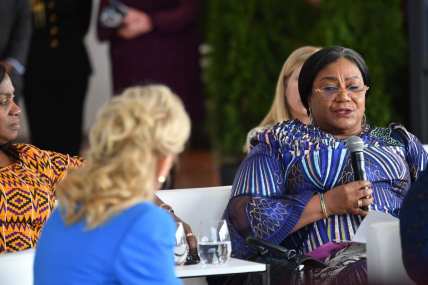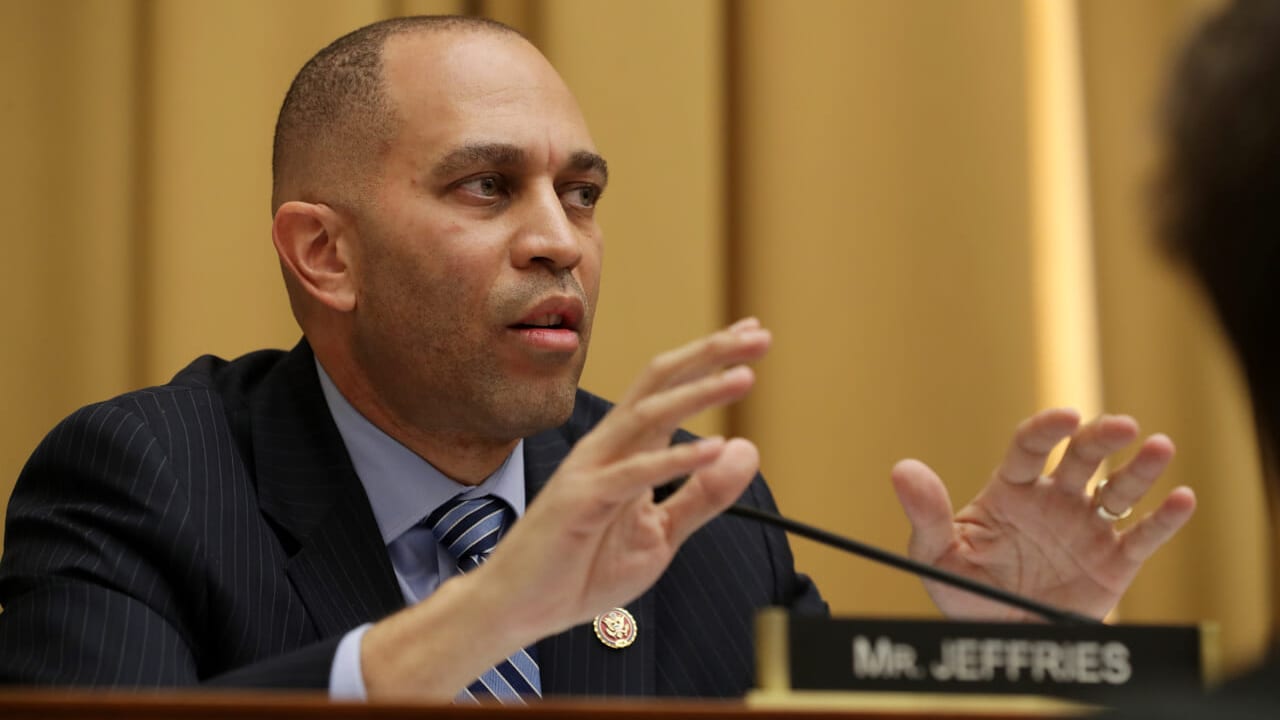South Africa leader fights for political future over scandal
South Africa President Cyril Ramaphosa says he's innocent of charges that he hid at least $580,000 in a sofa at his game ranch.
JOHANNESBURG (AP) — The president of South Africa is fighting for his political future amid an unfolding scandal that has tainted his reputation as an anti-apartheid icon once widely admired for tackling the problems of Africa’s most developed economy.
Cyril Ramaphosa, 70, says he’s innocent of charges that he hid at least $580,000 in a sofa at his game ranch. He’s accused of not registering the money with authorities, and when it was stolen not reporting the theft to police, in order to avoid questions about how he got the U.S. dollars.
South Africa’s ruling party, the African National Congress, is to vote in a conference starting Friday about whether Ramaphosa should step down as the party’s leader. South Africa’s past two presidents have had to resign after losing the party leadership at the ANC conference.

Ramaphosa handily survived an impeachment vote in parliament this week, strengthening his hand in the upcoming party conference vote.
Ramaphosa is also being investigated on possible charges of illegally holding foreign currency.
“From Ramaphoria to Ramafailure,” read a headline this week on the News24 website that described how widespread admiration over Ramaphosa’s leadership of this nation of 60 million has become dismay.
Once respected for his anti-apartheid activism and his bond with Nelson Mandela, Ramaphosa came from a trade union background to become a board member and shareholder in several of South Africa’s largest corporations. Ranked as one of South Africa’s wealthiest men, he appeared well-equipped to tackle the corruption that has reached into virtually every corner of South African life including dealings with police and accessing government services.
One of Ramaphosa’s pet projects is his Phala Phala ranch in Limpopo province, where he raises prize Ankole cattle and African antelopes. The allegations against him stem from a report that undeclared foreign cash was hidden in a couch at his house on the ranch. When that money was stolen in 2020, Ramaphosa did not report the theft to police, apparently to avoid questions about where the money came from and why it had not been declared to officials.
Ramaphosa maintains that his ranch got the money from the sale of some buffalo to a Sudanese businessman and the ranch manager did not know what to do with the cash.
Ramaphosa’s supporters argue that the allegations against him — that he broke South African regulations prohibiting citizens from holding foreign cash without declaring it to financial authorities — are minor compared with the billions of dollars that, critics say, were stolen from the state by associates of former President Jacob Zuma who got fraudulent contracts with state-owned corporations.
“The disappointment in Ramaphosa is profound,” said William Gumede, head of the Democracy Works think tank. “But South Africa’s expectations have dropped so low that Ramaphosa is still seen as better than other alternatives. I’m struck by how this is the view from the boardrooms of major corporations to people in rural villages.”
Parliament voted 214 to 148 against starting impeachment proceedings on Tuesday, with Ramaphosa getting support from almost all lawmakers in the ruling African National Congress party, which holds a majority of seats.
That ANC support bodes well for Ramaphosa being re-elected the party’s leader. He must win the party leadership in order to stand for re-election to a second term as South Africa’s president in 2024.
Nelson Mandela is the only post-apartheid South African president to retire voluntarily, after serving one term from 1994 to 1999. Thabo Mbeki, Mandela’s successor, was forced to resign in 2008 after falling out with a faction linked to his then-deputy, Zuma.
Then came the Zuma years. A judge heading an extensive judicial investigation into corruption said those years were characterized by rampant looting of state coffers. Zuma was forced to resign when the corruption allegations against him became overwhelming.
When Ramaphosa took over from Zuma in 2018, he promised to clean up the mess and supported the judicial inquiry. He won respect for capably steering the country through the COVID-19 pandemic. But the scandal over the dollars stashed in a sofa at his ranch has forced him to concentrate on just staying in power.
“The majority of the ANC will no doubt close ranks around Ramaphosa and he will continue as the party’s leader and as the country’s president,” Gumede said. “But to survive he has had to get the support of many dodgy characters. They will demand a quid pro quo and he will no longer be able to effectively battle corruption. He will stay in power but he will have less power to do anything. This will make him a lame duck.”
Ramaphosa’s political struggles come as South Africa is confronted by a daunting array of problems, including unemployment of 35%, inflation of 7.4% and national power outages lasting more than seven hours a day.
“Across South Africa, there is a sense of hopelessness. People don’t have political leaders or political parties they trust,” Gumede said. “It’s not a good outlook for South Africa. The only glimmer of hope is that elections in 2024 will bring a better set of leaders.”
Ordinary South Africans express a weary cynicism over Ramaphosa.
Lerato Makgatho, 38, who lives in Johannesburg’s Kempton Park area, said the revelations about the cash at Phala Phala shocked her.
“He has always been known to be a billionaire, so to hear about dollars of cash in a couch at his farm does not fit with that picture,” she said. “This one was quite a shock to me.”
Thabiso Kome, 35, a community activist in Tembisa township, east of Johannesburg, said he did not expect Ramaphosa to solve the scourge of corruption because it is so widespread in the ruling party.
“Some of us have seen corruption at a local level, at local clinics and hospitals. That kind of corruption cannot be solved by one person,” said Kome. “It is normal to hear about corruption and controversy when it comes to the ANC. Ramaphosa, he is part of it.”
TheGrio is FREE on your TV via Apple TV, Amazon Fire, Roku and Android TV. Also, please download theGrio mobile apps today!
More About:Politics African Diaspora










